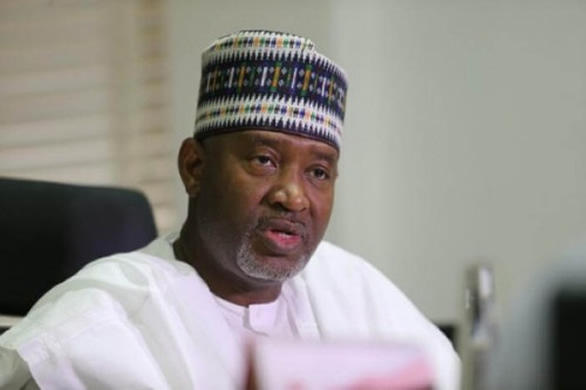Price controls and low production are the major reasons stopping Nigeria from profiting from the global oil boom.
The Economist said this in a new report published over the weekend.
The report said oil exporters in the Middle East and Central Asia are “cock-a-hoop, as they may pocket over $320 billion in oil revenues this year than previously forecast”.
It added that Nigeria, Africa’s biggest oil-producing country, is a “conspicuous absentee from the merry petro-party”.
According to the report, “price controls remain the biggest reason the boom was ruining the public purse, whereas elsewhere, as the price of crude rises, drivers pay more at the pump, it was not so in Nigeria.”
“Africa’s most populous country, around 220m-strong, desperately needs the money an oil boom could bring. Some 40 percent of its people live on less than the equivalent of $1.90 (N 812.44) a day,” the report reads.
“The government is struggling to service its debts. Social services are dire. The woeful economy has contributed to the violence that afflicts much of the country. In the first half of this year, nearly 6,000 people were killed by jihadists, kidnappers, bandits or the army,”
“Petrol is about N175 ($0.42) a litre, among the world’s cheapest, yet the government has not raised the official price since December 2020.
“In January President Muhammadu Buhari reneged on his latest promise to reform the system, leaving the government to pay for the vast gap between Nigeria’s low fixed price and the global one. The state-owned Nigerian National Petroleum Corporation (NNPC) covers the fuel subsidy from its profits and sends what is left to the government. But in the first half of this year, it sent nothing at all.”
“Some Nigerians, unsurprisingly, buy cheap subsidised petrol, smuggle it across the border and sell it at a huge markup in neighbouring countries. Such smuggling is most lucrative when global prices are high. Also, although Nigeria pumps crude oil, its refineries are so dysfunctional they have been closed down, so it imports almost all of its refined fuel.”
The report also identified low production as another reason for reduced benefits, adding that Angola’s petrol production has superseded Nigeria.
It explained that low production or output is due to the shortage of cash after paying for petrol subsidies that it struggles to cover production costs for pumping crude oil.
It also added that a lot of oil is never counted as part of Nigeria’s output because it has been stolen.
Last week, TheCable reported that Nigeria’s crude oil production dropped to an average of 972,394 barrels per day (bpd) in August 2022, an all-time low.
“Another reason Nigeria’s public finances benefit so little from high oil prices is that production itself has slumped to 1.13 million barrels per day, the lowest in more than 50 years, which is partly why the oil industry has also been a drag on headline economic growth. Output has been dipping slowly since 2005. This year it has dived. Angola’s output recently overtook Nigeria’s,” the report added
Although estimates vary, The Economist said the oil industry’s regulator noted that thieves are snaffling 108,000 barrels a day, about seven percent of production, costing the government about $1 billion in the first quarter of this year.
“The Trans Niger pipeline, which can transport 180,000 barrels a day (about 16 percent ent of the country’s current production) suffers so much theft that its flow has been halted since June,” the report added.
“Another big pipeline that carries 150,000 barrels a day has also been repeatedly attacked. Shell, a big oil firm, has declared force majeure since March on all its exports of Bonny light, a high-quality crude, permitting it not to meet its contractual obligations.”
The Economist further revealed that one-way oil theft takes place is to overload legitimate shipments with more oil than is declared. Another is to “break into pipelines and siphon oil off, then cook it up in bush refineries before selling”.
“Plenty of stolen crude goes straight into the international market. Small boats glide along the delta’s canals, filling up from illegally tapped pipelines. They deliver it to offshore tankers or floating oil platforms. Sometimes the stolen crude is mixed with the legal variety and then sold to unknowing buyers. Much of it, however, is bought by traders who pretend not to know it is stolen, or do not care,” the report added.
The issue of oil theft, vandalism and underproduction have been a major setback for Nigeria in the oil industry.
Last year, TheCable reported how the subsidy burden and vandalism put Nigeria’s oil revenue at risk.
Mele Kyari, group chief executive officer (GCEO), Nigerian National Petroleum Company (NNPC) Limited, had said churches, mosques, security agencies as well as host communities are involved in crude oil theft.
Stakeholders have asked the government to declare an emergency on the country’s oil industry due to oil theft and underproduction.







